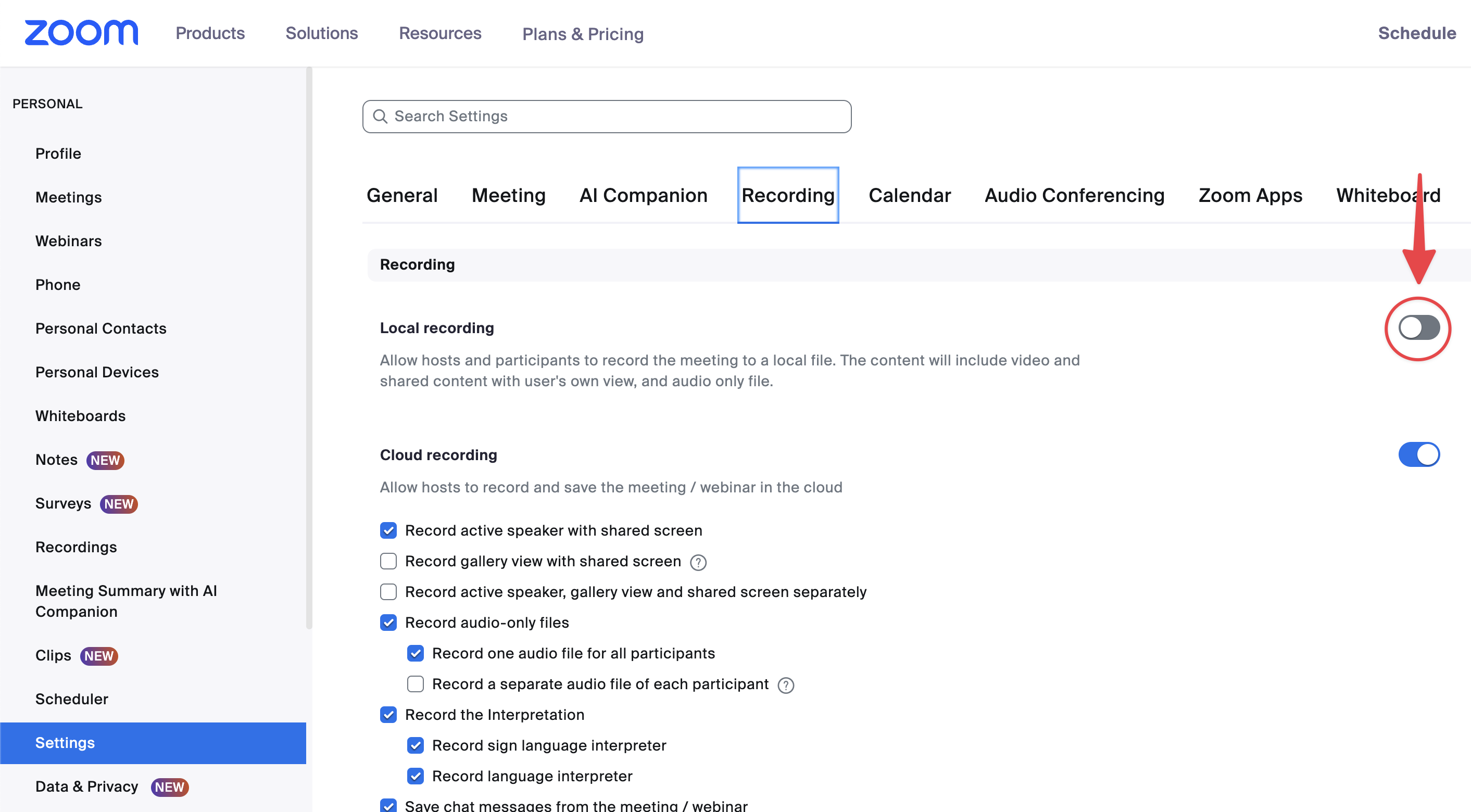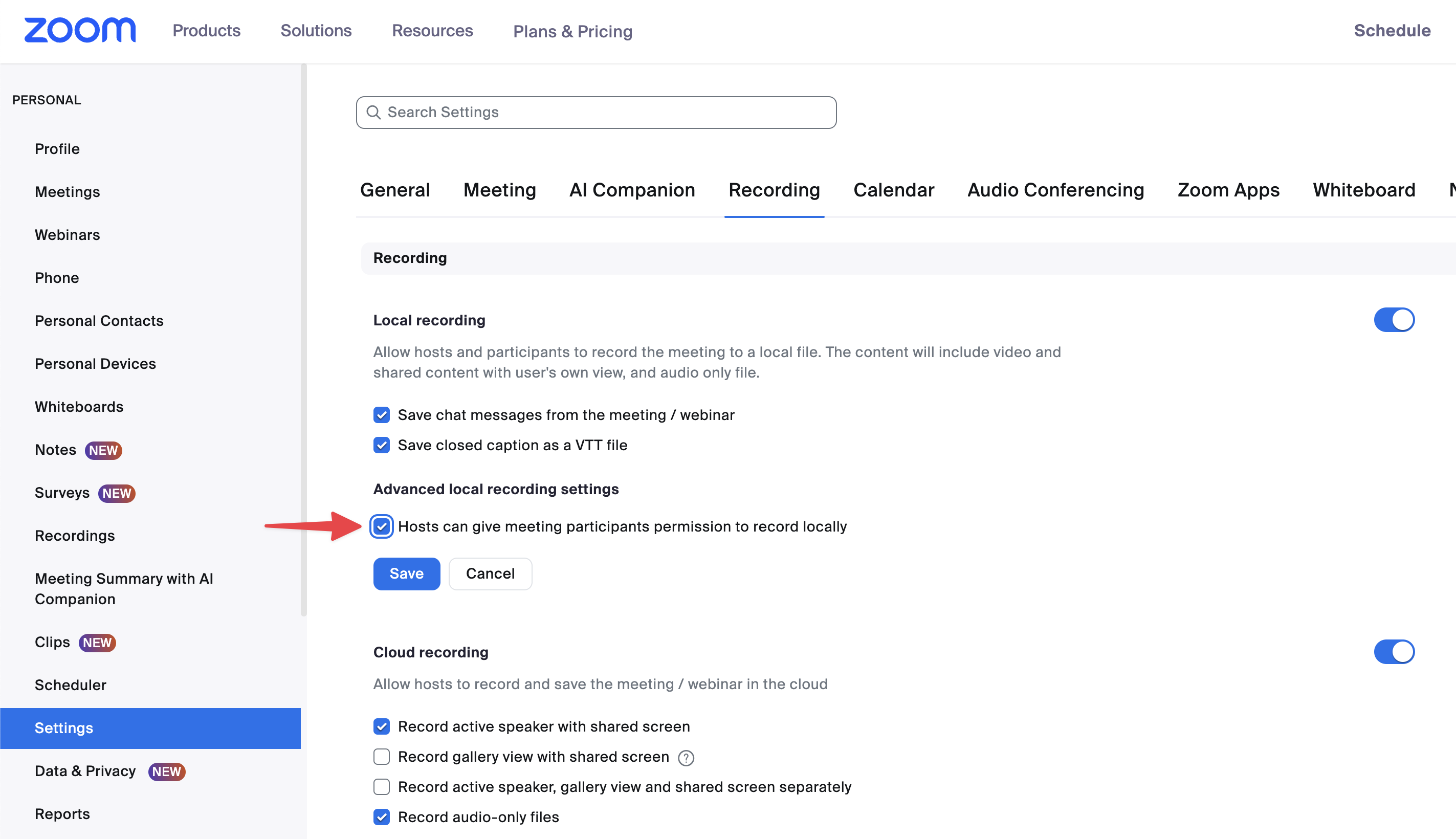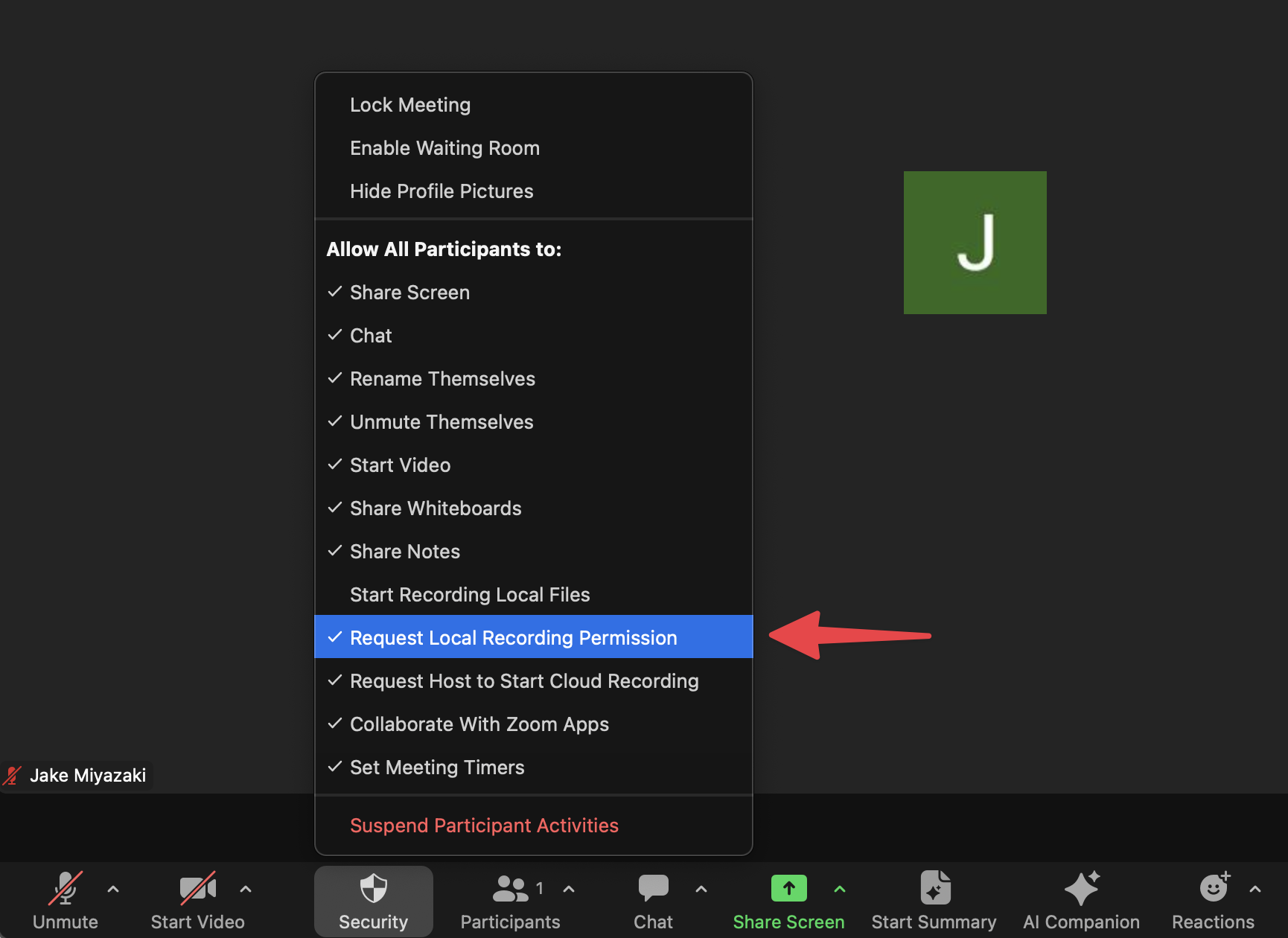Common Zoom Recording Errors
Common situations in Zoom that prevent a bot from recording.
Host is using the web client
One limitation of the Zoom web client is that it currently doesn't support prompting the host for local recording permission. This means that if the host is on the web client, the bot won't be able to prompt the host and record.
To fix this issue, the host should switch to using the Zoom Desktop app (on Windows, Mac, or Linux).
Alternatively, you can use the Zoom OAuth integration to allow bots to record regardless of the Zoom client the host is using.
Host was not present
Sometimes a bot joins a meeting but is unable to record because it never asked for permission. In this case, this means the host was not present and thus was unable to grant recording permissions to the bot.
In general, if the meeting host does not show up to the call, the only way for the bot to get permission is through the Zoom API if the host has connected their account via OAuth. If it’s a common situation for the host to not show up, you may want to look into this flow so the bot is able to record in these circumstances.
We provide a Zoom OAuth Integration to make it easy for the bot to get recording permission through the API.
The host's local recording setting is disabled
If the host's global local recording setting is disabled, the bot will fail to record.
In this case, the bot will have a Recording Permission Denied event with a zoom_local_recording_disabled Sub Code.
How to fix: Host should enable their global user-level local recording setting in their Zoom user settings:

The host has disabled permitting participants to record locally
In this case, the host has their global local recording setting enabled, but they can't grant participants permission to record locally, which is needed for a bot to record.
The bot will emit a Recording Permission Denied event with a zoom_local_recording_request_disabled Sub Code.
How to fix: Host should enable this setting by checking the box labelled:
Advanced local recording settings > Hosts can give meeting participants permission to record locally **

The host has disabled requesting recording permission within the current call
If the host has the proper user-level recording settings set up properly on the Zoom website, but has disabled the option to allow participants to request local recording within the call, the bot will not be able to record.
In this case, the bot will emit a Recording Permission Denied event with a zoom_local_recording_request_disabled_by_host Sub Code.
How to fix: Host should enable this setting within the call:

Zoom internal error
On rare occasions, your bot may fail to enter a call with a zoom_internal_error sub code.
Unfortunately this means something went wrong on Zoom's end, and we have limited visibility into the underlying error. We do our best to handle these errors internally through retries but on rare occasions this error can cause a bot to fail.
If you're seeing this error recur for a certain situation or user, please let us know and we can raise the issue with Zoom.
Host never received the recording consent popup
In certain cases, a user may report that the bot never recorded and they never received a recording consent popup to grant recording permissions.
When this happens:
- The bot will have neither a
recording_permission_allowednor arecording_permission_deniedevent - None of the
meeting_participantson the bot will haveis_hostastrue
This is the same situation as the host not being present, but in this case, the end user that created the meeting was actually in the call.
If the host claimed they were present, but no participant is shown as the host, it's likely that the user joined the Zoom call while signed into a different Zoom user than the one that the meeting was created from.
Many users have multiple Zoom accounts and they'll need to ensure they're joining the meetings from the same account as the one they're creating meetings from. If the end user needs to support granting recording permissions from various Zoom accounts, they can assign their alternative account(s) as alternative hosts.
Updated 24 days ago